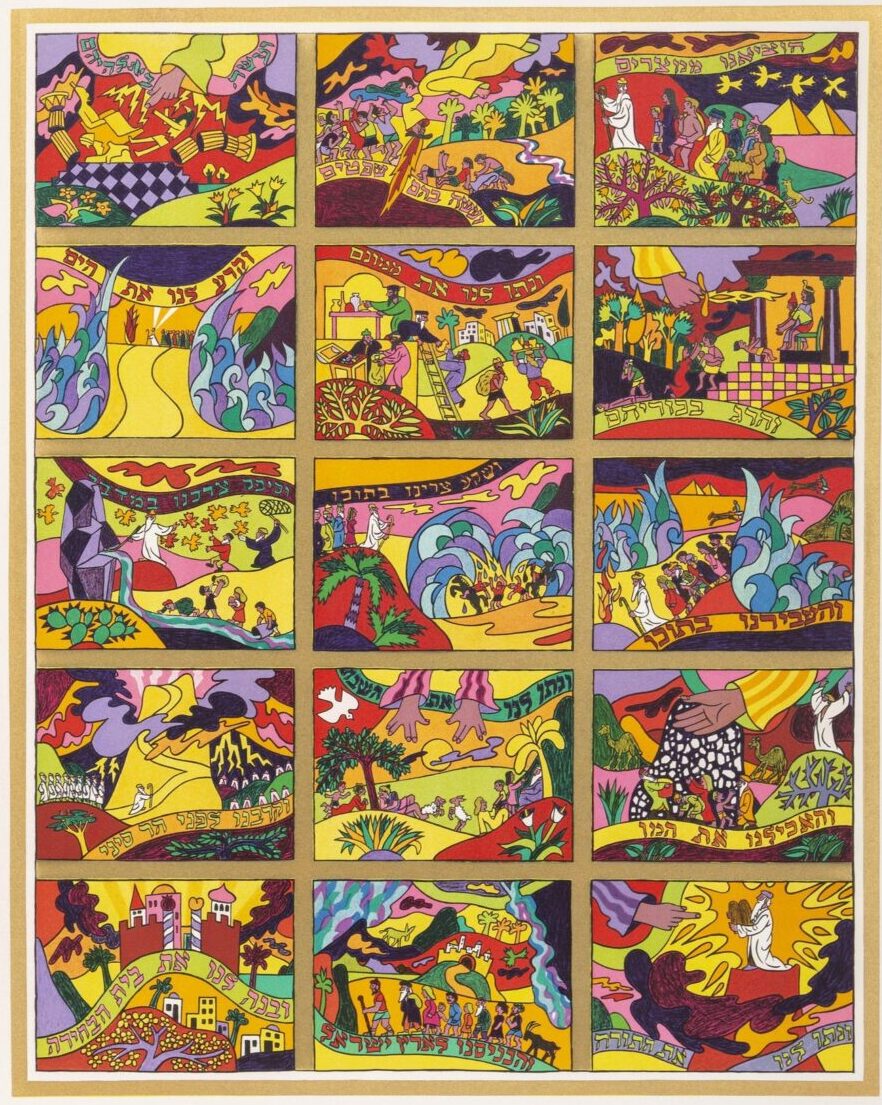One of my Israeli friends recently shared with me one of his favorite stories. His then-five-year-old son Ron was running around on the playground, doing something dangerous, and my friend wanted him to stop. Since he was getting frustrated, he couldn’t quite get the words out in English of what he wanted to say, which was, “Ron, enough!” Unfortunately for the surrounding parents, he lapsed back into Hebrew, and the shocked passersby thought my friend yelled at his son to “Die, Ron, die!”
With the constant barrage of news coming out of both the United States and Israel, many of us are entering into the Pesach season ready to say, “Dai – enough, already!” Indeed, many of us may be feeling the reverse of the Dayeinu prayer – “If the only problem were the hostages still in captivity, dayeinu. If the only problem were the rise of antisemitism and the struggle of navigating free speech and security, dayeinu. If the only problem were the cost of living rising and the markets tanking, dayeinu. If the only problem were the lack of trust in our political leaders, dayeinu.” Without a doubt, many of us could come up with a whole litany of people and actions for which we’d like to say, “Enough!”
And yet, as we look at this world right now, the framing of Dayeinu can be enormously helpful. It requires us to take things one step at a time. After all, in the song, we give thanks for each moment towards liberation – for taking us out of Egypt, for splitting the sea, for giving us Shabbat, for giving us the Torah, and so on. The truth is, if any of those had been the end of the story, we wouldn’t be here today to celebrate Pesach. And yet we give thanks for each individual action, as if that particular miracle was enough in and of itself, and thus requiring gratitude.
That’s because each step in Dayenu is tangible and requires celebration. We get exhausted if we have to fight battles over and over, especially ones that feel uphill, endless, or without a chance of true success. And that’s because so many of our goals – especially societal ones – aren’t actually achievable. One of the best lessons I learned through conversations with community organizers is, “How will you know if you won?” “A more just society,” or “the elimination of Hamas,” or “a better economic system” or “ending racism” is wonderful for slogans but very hard to actually implement. So when we do see an unjust law repealed, or a vulnerable population protected, or an unexpected partnership or allyship, we can say, Dayeinu – that would have been enough. While it’s not totally enough, and we know it’s not enough, simply acknowledging and celebrating those small victories allows us to take the next step.
This Pesach, our natural inclination may be to ask, “What are you fighting against?” And there is value in that. But I’d argue that a more important question is, “What are you fighting for? And how will you know how the world has changed through your actions?” If we do, while it may feel as though we constantly read the news and want to scream, “Enough already!”, perhaps we can see each action, each moment as enough in and of itself, so that we can then take the next step required.
Photo from “Haggadah of Passover,” by Shlomo Katz

